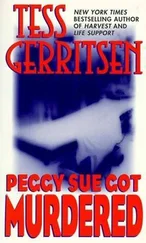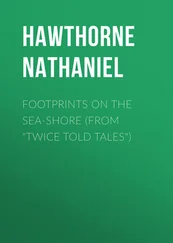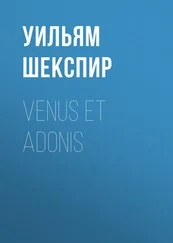“That’s quite all right,” said Ragwort, “don’t worry for a moment. I had rather been hoping that this suit might last another week or so before it had to go to the cleaners; but no doubt I was wrong. In referring, however, to karate, are you quite sure that you’re not confusing it with some new kind of dance?”
“Just because you’re miffed about your suit,” said Cantrip, “there’s no need to be offensive about my karate. I’m jolly well up on it. I knew a chap at Cambridge who was a Black Belt and he showed me how to do it, one weekend when it was raining.” Proficiency in the ancient art of the Samurai requires, as I understand it, some years of rigorous training. It even involves, I have been told, a certain cultivation of the soul: the question whether Cantrip has such a thing is a matter, as my readers may recall, of some dispute. Still, he has a good deal of agility and natural aggression — it did not seem to me that it would be seriously irresponsible to allow him to interview the Major alone. I nonetheless felt obliged to raise an objection.
“Cantrip,” I said, “it won’t do. He saw you at the airport, when you were looking at the luggage. He might recognize you.”
“Well yes, I expect he will,” said Cantrip. “And if he doesn’t, I’ll remind him. I’ve got it all worked out. I’ll go into his shop and pootle around for a bit, the way you do in antique shops. And after a while he’ll come up to me and ask if I’m looking for anything in particular. And then I shall give a tremendous start of surprise.”
“Cantrip,” said Selena, “you won’t overdo it, will you?”
“I shall give a tremendously natural and convincing start of surprise and say, Good heavens, wasn’t he at the airport on Saturday when I was making such a frightful ass of myself? And he’ll say, Good Lord, aren’t you the frightful ass who couldn’t find his suitcase? And I shall say, Yes, what an extraordinary coincidence. And then I’ll go on to say what a frightful ass he must have thought I was. And he’ll say yes, as a matter of fact, to be perfectly frank he did think I was rather a frightful ass.”
“And when,” said Ragwort, “a consensus ad idem has been reached on this point?”
“Well, then I’ll go on to say that why I was in such a stew was because I was supposed to be meeting my Uncle Hereward for lunch and my plane was late. I’ll try to get the idea across that I’d been in Paris with a girl my uncle didn’t approve of and I didn’t want him to know I’d been away at all — it’ll add what we in Fleet Street call human interest.”
“Is your Uncle Hereward,” asked Selena, “the one with eccentric ideas about pure womanhood?”
“That’s right. Anyway, I’ll tell him that my Uncle Hereward has a tremendous thing about punctuality, being an ex-military man. And the Major, hearing that I’m related by blood to a brother officer, will fall on my neck and embrace me. Metaphorically, I mean, because I see this as a jolly English and manly sort of scene.”
“Quite so,” I said, “but how are you going to get in the business about the picture?”
“Well, after we’ve chewed the fat a bit about regiments and brigades and so forth, I’ll slip in something about my uncle being interested in collecting pictures and antiques.”
“That,” said Ragwort, “will certainly carry more conviction than any claim that you yourself are an amateur of the fine arts.”
“Right. And I’ll go on to say that my uncle is specially interested in forgeries, like things by this Van Megawatt chap. I’ll tell the Major that if he ever comes across anything in that line I’d be jolly grateful if he’d let me know about it, because if I can put my uncle on to it it’ll put me in good with him.”
“You will imply, I suppose,” said Ragwort, “that you have expectations?”
“Yes. Subtly, though. It’d sound a bit off to say outright that I thought the old boy was going to leave me a packet. Not that he is, of course, because he thinks I’m the generation that’s betrayed his ideals — but the Major’s not to know that.”
“Cantrip,” I said, “about the picture—”
“Don’t flap, Hilary. What I’ll say is that last week my uncle was frightfully miffed because he read in The Times that someone had swiped a picture he’d specially have liked to get his hands on himself. I’ll say he was in Verona on holiday last year and identified this painting as something by this February chap.”
“Fabbro,” I said anxiously.
“Don’t worry, Hilary — it’ll be all right on the night. And the thing that miffs him most, I’ll say, is that if he’d realized they didn’t know its value and hadn’t got it wired up to alarm bells and things, he’d have swiped the thing himself. Jolly subtle, don’t you think?”
“You mean,” said Selena, “that this will indicate to the Major, should the picture in fact be in his possession, that your uncle would have no moral objection to acquiring stolen property?”
“That’s right,” said Cantrip. “Of course, if he actually knows anything about my uncle, he’ll know that anyway. But I suppose there must be people in the Army who’ve managed never to hear of the old boy.”
Selena remained uneasy about allowing Cantrip to go alone. Eventually we reached a compromise. We would all go together to Fulham. When prudence required, the rest of us would separate from Cantrip, but only to the extent of walking on the other side of the road. We would find a vantage point opposite the Major’s antique shop and keep Cantrip under careful observation. Cantrip for his part undertook that he would avoid, if at all possible, being lured from the front of the shop into any rearward den in which a murderous attack upon him might pass unobserved.
“The only thing is,” said Cantrip, “it may take me a bit of time to get the Major to break down and confess everything and if the solicitors for the Duke of Whatsitsname or someone like that suddenly need the services of a Chancery Junior, it won’t do them much good asking at 62 New Square. Henry’s not going to like it.”
“My dear Cantrip,” said Selena, “if you are prepared to engage in a solitary interview with a possible murderer, it will be a poor thing indeed if Ragwort and I lack the courage to tell Henry that we are all going to a most important lunch and may be gone some little time.”
“Quite so,” said Ragwort. “Besides, with any luck, Henry will leave for lunch before we do and we can leave a message with the temporary typist.”
Remembering the tedious complexities of reaching the New King’s Road by public transport, Selena, that morning, had prudently brought her motor-car to Lincoln’s Inn. At the hour when the members of 62 New Square would usually have gone to lunch, we set out in it for Fulham. Having negotiated, with that brisk insouciance on which I have previously commented, the complexities of the one-way system between Lincoln’s Inn and the Thames Embankment, she drove westwards through Chelsea.
Ragwort, because he has a house there, contends that Fulham is going up in the world. I do not quite like to argue with him about it. I must confess, however, that the New King’s Road, at any rate, always gives me the impression of moving in the reverse direction. Those substantial terraced houses can never, I suppose, have been intended for occupation by the indigent; but the state of their paintwork and pointing suggests that they were acquired some years ago in a period of actual or expected affluence which afterwards proved short-lived or illusory.
There are, in this part of London, numerous establishments dealing in second-hand merchandise, declining, with more or less regularity as one proceeds westward, from antiques to bric-a-brac to junk. The premises occupied by Major Linnaker were in the doubtful no-man’s-land between the first and the second. We observed with satisfaction that his shop was situated almost directly opposite a public house whose landlord had had sufficient confidence in the warmth of the September weather to place outside on the pavement a wrought-iron table and chairs.
Читать дальше











